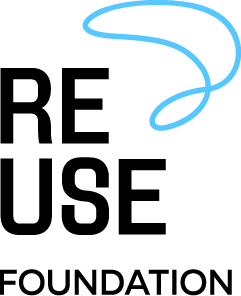Featured
TARGETING SINGLE-USE PLASTIC AND SEEING OPPORTUNITIES IN REUSE |
|
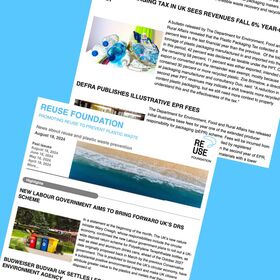
|
40% of plastic is for packaging, almost all of it single use. It’s used once then discarded. Disposable packaging is convenient but brings growing environmental and health costs.
It doesn't have to be this way. There are many ways to sell products without single-use plastic, including traditional and emerging solutions. Some of these solutions are experimental but others are already profitable and starting to scale. But knowledge and understanding about reuse solutions is patchy, support is low, and many solutions fail to get off the ground. REUSE Foundation is working to change this. We’re working on many fronts and this newsletter your reading is just one. This monthly brief brings together insights and key developments to help businesses and decision makers see the opportunities as well as the threats of inaction. We’ll supplement it with analysis and reports to inform and guide business practitioners and policy makers. Sign up for monthly updates.[Image Credit: © REUSE Foundation] |
Highlights
Murad Introduces Cosmetic Products With Refillable Packaging |
|
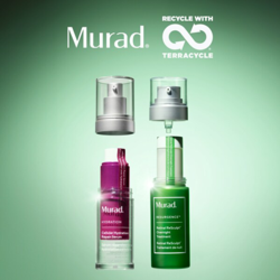
|
Murad introduced refillable versions of its Retinal ReSculpt Overnight Treatment and Cellular Hydration Barrier Repair Serum cosmetic products. The brand said the refills help cut packaging materials by as much as 85 percent, while saving 15 percent on cost.[Image Credit: © Murad / PRNewswire] |
Nestlé Plans To Use Recyclable Shrink Sleeves On Nesquik Range Of Milk Products |
|
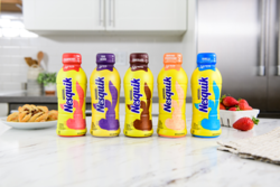
|
Nestlé said it plans to start using a new recyclable shrink sleeve label on its Nesquik range of ready-to-drink flavored milk products in the United States. Designed with a print technology that blocks light, prolonging the product’s shelf life, the crystallized PET sleeves mean the cap, bottle, and sleeve can be recycled together in the country. Also, the company revealed its plan to use the sleeve technology with its other beverage products.[Image Credit: © Nestlé]
|
Study Finds Compostable Packaging Breaks Down Successfully At Composting Facilities |
|
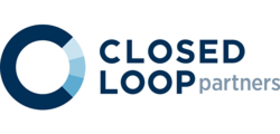
|
Compostable packaging breaks down as designed at composting facilities that satisfy reasonable parameters, according to a study by the Composting Consortium. Details of the report, “Breaking It Down: The Realities of Compostable Packaging Disintegration in Composting Systems”, also revealed that compostable packaging and products achieved an average disintegration rate of 98 percent by surface area, while compostable fiber packaging recorded an 83 percent rate. The study also found out that some operating conditions, such as turning, agitation and consistent moisture levels above 50 percent, enhance breakdown of fiber packaging and products.[Image Credit: © Closed Loop Partners]
|
Tetra Pak Research Shows Food And Beverage Manufacturers Willing To Pay For Sustainable Business Practices |
|
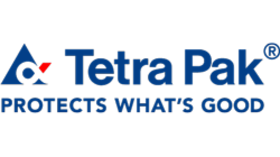
|
Research by Tetra Pak revealed that 77 percent of food and beverage manufacturers are willing to bear the cost of sustainable business practices. Of the companies that took part in the survey, half cited consumer demand as the driving force for adopting sustainable solutions for manufacturing and processing. This finding confirmed the finding of other Tetra Pak research that revealed that 74 percent of consumers are more likely to buy “if a brand talked about environmental topics”, while 42 percent think that sustainable packaging justifies higher prices.[Image Credit: © Tetra Pak International SA]
|
Unilever Helps Launch Competition Promoting Innovation In Plastic Recycling In Vietnam |
|

|
Unilever Vietnam partnered with the country’s Ministry of Natural Resources and Environment, the British Chamber of Commerce, the Startup Vietnam Foundation, the British Embassy and Standard Chartered Bank to launch a competition aimed at promoting innovations in plastic waste collection and recycling. The contest seeks to push a circular economic model in plastic waste management and support the creation and implementation of product and packaging recycling responsibility rules for manufacturers and importers. The contest is open to both individuals and organizations with sustainability-related services, products and technologies.[Image Credit: © Unilever]
|
US Toothpaste Companies Adopt HDPE-Compatible Recyclable Packaging Tubes |
|
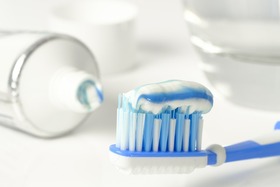
|
According to research company Stina Inc., about 90 percent of toothpaste tubes sold in the US today are manufactured in a manner that means they can be recycled with HDPE, and that 75 percent of squeezable plastic tubes have the “correct design”. At present, manufacturers accounting for 90 percent of the US toothpaste market have adopted the guidance issued by the Association of Plastic Recyclers for making tubes compatible with the HDPE recycling stream.[Image Credit: © Bruno from Pixabay]
|
WRAP Opens Washington Office To Coordinate Actions Across The Americas |
|
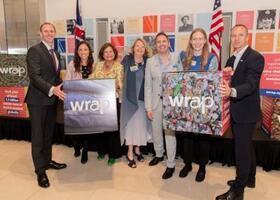
|
Anti-climate change NGO WRAP opened a new office in Washington, D.C. Executive Director Leah Karrer will lead the office, established to coordinate action aimed at food waste, plastic pollution and textile waste across North, Central and South America. WRAP in the Americas is working with partners in Brazil for the launch of the first nationwide food waste voluntary agreement in the country. The group will publish a report on the impact of the agreement and other similar deals worldwide before the next round of the Global Plastics Treaty negotiations.[Image Credit: © The Waste and Resources Action Programme]
|
Report Highlights Emerging Trends In Sustainable Packaging |
|
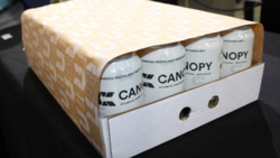
|
Fiber-based packaging is finding an increasing number of applications that used to be exclusively for plastic, according to the Sustainable Packaging Coalition. Details from the first issue of the group’s Packaging Innovation Trends Report also highlighted other trends in sustainable packaging, such as the growing adoption of seaweed as a packaging material and the use of machine learning and artificial intelligence in recycling packaging with complex designs. Also, the report highlights the use of digital recyclability labelling and how cities are driving growth of reuse programs.[Image Credit: © Atlantic Packaging]
|
Beauty Retailers Launch Programs To Reduce, Recycle, Reuse Plastic Packaging |
|
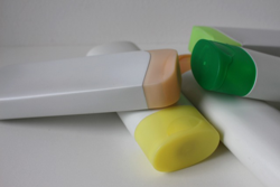
|
Beauty retailers Kiehl’s, Sephora, Shoppers Drug Mart and Ulta launched initiatives aimed at reducing their use of plastic packaging and contribution towards plastic pollution. Kiehl’s Since 1851 line is working with artist Benjamin Von Wong to launch the Single-Use Reflections sculpture urging viewers to think about how systemic change and personal efforts can help the environment. In Canada, Shoppers Drug Mart launched its Quo Beauty Cosmetics Free Recycling Program, while Ulta Beauty expanded its partnership with Pact Collective to widen the Beauty Drop-Off recycling program.[Image Credit: © Monfocus from Pixabay]
|
Survey Shows 63 percent Of Americans Support Global Plastics Treaty |
|
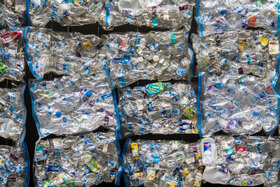
|
In the US, 63 percent of respondents said they support a Global Plastics Treaty that would ban single-use packaging, according to Greenpeace International. Details of the global survey also revealed that 75 percent of American respondents said they would use refillable and reusable packaging if it was “more convenient or more cost-effective”. Also, 82 percent of respondents to the survey, which included respondents in several countries, including the UK, Canada, India, Brazil and Egypt, said they support reduction in plastic production to end plastic pollution.[Image Credit: © Nick Fewings on Unsplash]
|
Survey Says 1/3 Of American Adults Reduced Use Of Plastic Products |
|
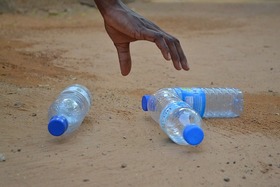
|
In the US, about a third of adults say they have decreased their use of plastic products over the past five years, but data from the most recent NPR/PBS NewsHour/Marist survey also revealed that 47 percent showed no changes in their levels of use of water bottles, straws and other plastic products. Also, survey results showed households with annual income above $50,000 and college graduates were more likely to report a decline in their use of single-use plastics. Political affiliations also seemed to play a role, with Democrats and independents reporting more of a decrease in their plastic use compared with Republicans.[Image Credit: © isidingo from Pixabay]
|
Activist-Investor Files Shareholder Resolution Requiring Kraft Heinz To Improve Packaging Recyclability And Labels |
|
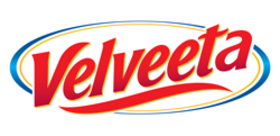
|
California chemical engineer and activist-investor Jan Dell filed a shareholder resolution with Kraft Heinz to force the food manufacturer to be more transparent about how it recycles its plastic packaging. Dell said her action is aimed at ensuring the company reduces its risk against lawsuits over its recycling labels and urges the company to improve the recyclability of its plastic packaging. Shareholders are currently voting on the resolution ahead of the company’s May 2, 2024, annual meeting.[Image Credit: © The Kraft Heinz Company]
|
Unilever Pushes Adoption Of Extended Producer Responsibility To Promote Sustainability In Vietnam |
|
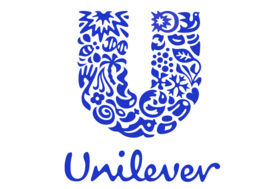
|
Unilever Vietnam is promoting extended producer responsibility as an effective environmental policy aimed at advancing circular economy in plastic waste management in the country. With three years of experience in local EPR, the company built a working plastic management strategy with three main objectives: improving packaging materials to enhance recyclability, reducing the use of virgin plastic and collecting and recycling more plastic on the market. However, the company said the local recycling industry still needs to be developed, with only 33 percent of plastic waste being recycled, due to low demand for post-consumer resin plastic.[Image Credit: © Unilever]
|
The Sustainable Bottle Co. Offers 100 percent Environment-Friendly Aluminum Bottles For Beverage Industry |
|

|
GUNNA Drinks founder Melvin Jay launched The Sustainable Bottling Co., a manufacturer of aluminum bottle packaging for water, lemonades and other beverages. Jay said plastic bottles is one of the major contributors to single-use plastic waste pollution, a problem his company aims to help solve by providing fully recyclable aluminum bottles. His company plans to manufacture 330ml to 750ml bottles, which offer both convenience and sustainability.[Image Credit: © The Sustainable Bottling Co.]
|
UK Study Reveals Discrepancy Between Self-Reported And Actual Plastic Recycling Rates |
|
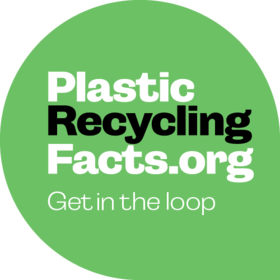
|
In the UK, 60 percent of adults said they always recycle plastic, while 34 percent said they usually do. However, national recycling rates show that these figures are not accurate, prompting the Environmental Services Association and British Plastics Federation to launch the PlasticRecyclingFacts.org campaign. The campaign aims to improve “consumer confidence” in recycling and deal with main barriers to effective household plastic recycling, including time pressure and confusion.[Image Credit: © Plasticrecyclingfacts.org] |
P&G, Dow Join Forces To Develop Recycling Technology For Hard-To-Recycle Plastic Packaging |
|
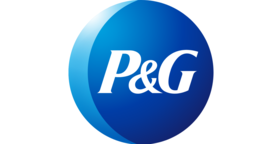
|
Procter & Gamble Company signed a joint development agreement with Dow to create new recycling technology for converting hard-to-recycle plastic packaging into recycled polyethylene with near-virgin quality and low levels of greenhouse emissions. The global partnership starts immediately and involves combining the companies’ respective patented technologies and knowledge bases. Also, the partners will bring their expertise in materials science, manufacturing strengths and experience in management of large-scale supply chains.[Image Credit: © Procter & Gamble]
|
Companies Need To See Sustainability As A Business Opportunity |
|

|
Fast moving consumer goods companies need to understand that complying with sustainability requirements is “not only a moral requirement but also a business opportunity”. Worldwide, 64 percent of consumers are worried about climate change and are trying to have a positive impact on the environment with daily actions, according to Euromonitor International’s Voice of the Consumer: Sustainability Survey. Also, data from Euromonitor Sustainability Products Claims Tracker report revealed that sustainable products outperformed their non-sustainable counterparts in eight of 11 industries in terms of retail sales CAGR from 2020 to 2022. Consumer brands and retailers are redesigning their packaging to improve margins and efficiencies, as well as minimizing their environmental footprint by reducing the amount of raw materials used and total product weight.[Image Credit: © Thomas Richter on Unsplash]
|
Johnson’s Baby Unveils New Refills In Environment-Friendly Packaging |
|

|
Johnson’s Baby introduced 33.8-ounce refills, which come in recyclable packaging made from 88 percent less plastic. Available for the brand’s Bedtime Bath, Baby Shampoo, and Head to Toe Wash and Shampoo product ranges, the refills offer 25 percent more content and cost 15 percent less than similar products that come in 400ml bottles.[Image Credit: © Johnson & Johnson Consumer Inc.]
|
Investigation Reveals Only Small Fraction Of Amazon’s Plastic Packaging Is Recycled |
|
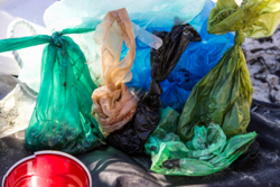
|
Contrary to Amazon’s recycling claim, only a small fraction of the online retailer’s plastic packaging reaches a material recovery facility, according to a published report by the nonprofits Environment America and US Public Interest Research Group. To determine what happens to Amazon’s plastic packaging, researchers attached small tracking devices to bundles of packaging deposited at retailers in 10 states. Results of the analysis revealed that only four of the 93 trackers made it to a material recovery facility that sorts plastics for recycling.[Image Credit: © Brian Yurasits on Unsplash]
|
Aldi UK Reveals Own-Brand Wines That Come In 100 Percent Recycled PET Bottles |
|
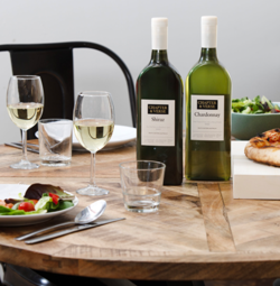
|
Aldi UK announced its own-brand Chapter & Verse Shiraz and Chapter & Verse Chardonnay that come in 100 percent recycled PET bottles, the first of their kind in the country. At just 63 grams, the recycled and shatterproof PET bottles are almost seven times lighter and stronger than their glass counterparts. Also, its compact design allows for 30 percent more bottles to be loaded onto pallets, requiring 30 percent fewer trucks to transport them to supermarkets.[Image Credit: © Aldi] |
